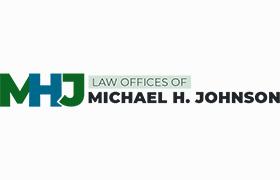 Pompano Beach Credit & Debt Lawyers, Florida
Pompano Beach Credit & Debt Lawyers, Florida
Sponsored Law Firm
-
 x
x

Click For More Info:
-
Law Offices Of Michael H. Johnson, P.A.
3601 W. Commercial Blvd Suite 31 Fort Lauderdale, FL 33309» view mapBankruptcy & Debt Experienced Legal Guidance
I know how important getting out of debt can be, and I’m committed to providing innovative, effective solutions to help you have a brighter future.
800-773-6441
Sponsored Lawyers
1-10 of 50 matches
Employment, Credit & Debt, Employee Rights, Accident & Injury, Wrongful Death
Mr. The Muhlstock is admitted to practice law in the Supreme Court of the United States of America; the United States Court of Appeals for the Second Circuit; the United States District Courts of the Southern District of New York, the Eastern District of New York, the District of New Jersey and the District of Puerto Rico; and all New York and New Jersey State Courts. He has also been admitted pro hac vice in the United States District Courts of: the Southern District of Florida, the Central District of California, the Southern District of Indiana, the District of Minnesota, the Northern District of Illinois, and the United States Bankruptcy Court for the Eastern District of New York. Todd D. Muhlstock has been practicing law for 25 years, including as: a Founding Member and Partner in Baker Sanders, LLC (formerly Baker, Sanders, Barshay, Grossman, Fass, The Muhlstock & Neuwirth, LLC) (2005 – 2015); Of Counsel to Barshay, Rizzo & Lopez, PLLC (2021- ); as Of Counsel to Barshay Sanders PLLC (2017-2020); Partner in Sanders, Grossman, Fass & The Muhlstock, PC (2002 – 2005); class action co-counsel with Girard Gibbs LLP (2012 – 2014); Of Counsel for Compliance and Litigation to Eric M. Berman, P.C. (2008 – 2010); General Counsel of The Zeus Organization LLC (2008- 2010); Of Counsel litigator to Sanders, Sanders, Block, Woycik, Veiner & Grossman (2004 – present); Of Counsel for Employment Law and Compliance to Aronova & Associates, LLC (2015 – present); Trial Counsel to Bergman, Bergman, Goldberg Fields & Lamonsoff LLP (2015 – present); Co-Chair and Founder of the Superstorm Sandy Litigation Group of the American Association for Justice (AAJ) (2013 – 2014); Senior Associate with Mergel, Tubman & Grossman (1996 – 2002); and intern with the law firm of O’Dwyer & Bernstein LLP (1995). Many attorneys, judges and television viewers throughout the country have seen Todd D. Muhlstock speaking on various aspects of the law. He has lectured on the law numerous times for the New York State Bar Association as well as The American Association for Justice (formerly the Association of Trial Lawyers of America); HarrisMartin Publishing (MDL Conference: Target Data Security Breach Litigation, March 2014); the New York State Judicial Institute where he twice lectured the Justices of the New York State Supreme Court Appellate Terms, First and Second Departments; New York Law School (Labor/Employment Law); Manhattanville College; and The City University of New York School of Law at Queens College – where he was also the Managing Editor of the New York City Law Review and received his Juris Doctor degree in 1996. Additionally, Mr. The Muhlstock has served on the Board of Directors of The Zeus Organization, LLC where he was also on the Executive and Investment Committees and served as Chief Compliance Officer; serves on the Board of Directors of A Gift From Alexa (a not for profit organization fighting the battle against Autism); served on the Executive Committee of NYFAIR (New Yorkers for Fair Automobile Insurance Reform); served on the Executive Committee of the New York Coalition of No Fault Attorneys; served as a judge for the 30th Annual Robert F. Wagner National Moot Court Competition; and has been a television legal expert commentator for several years covering murder, arson and robbery trials on Court TV – appearing on Catherine Crier & Company, Trial Heat and Both Sides. He is also a former member of the American Association for Justice, the Association of Trial Lawyers of America, The New York State Academy of Trial Lawyers, and the Nassau County Bar Association. Prior to the private practice of law, Mr. Muhlstock served as a law clerk to Acting New York State Supreme Court Justice and Judge of the Civil Court of the City of New York, Honorable Richard F. Braun; worked for the Attorney Grievance Committee of the Appellate Division of the New York State Supreme Court, Second Department; served as a Guardian Ad Litem for the Supreme Court of the State of Florida; and worked as a welfare benefits fraud investigator for the State of Florida Department of Human Services.
(more)



 Michael Johnson Fort Lauderdale, FL
Michael Johnson Fort Lauderdale, FL AboutLaw Offices Of Michael H. Johnson, P.A.
AboutLaw Offices Of Michael H. Johnson, P.A.

